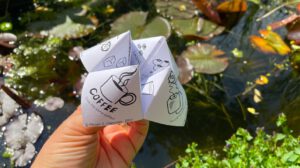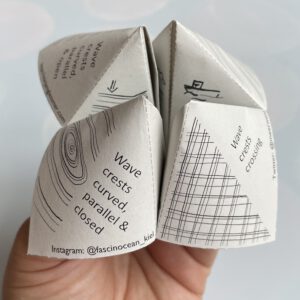
Can your favouite beverage tell you what your reseach as an ocean scientist should be on?
A “fortune teller” for #WorldOceanDay! What would you work on if you were an ocean scientist? And if you are an ocean scientist — are you doing the work you…
